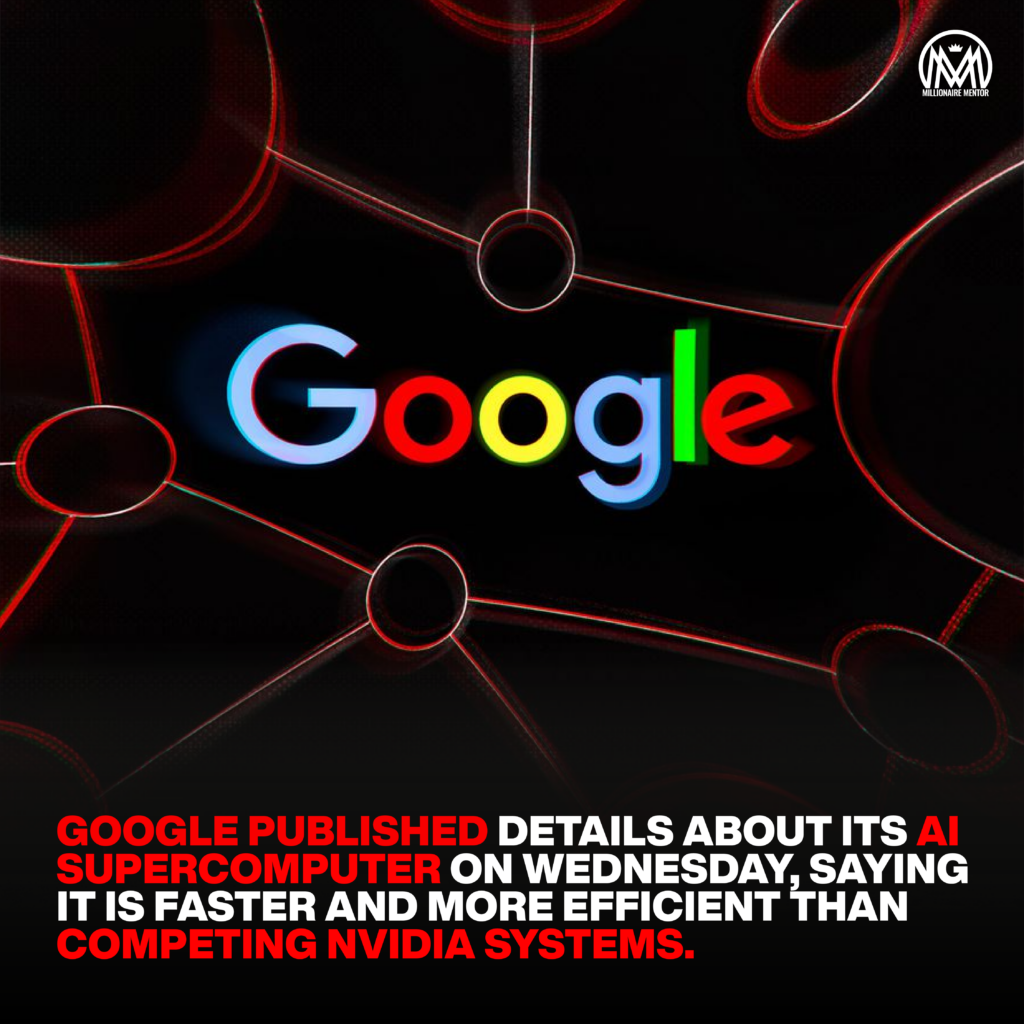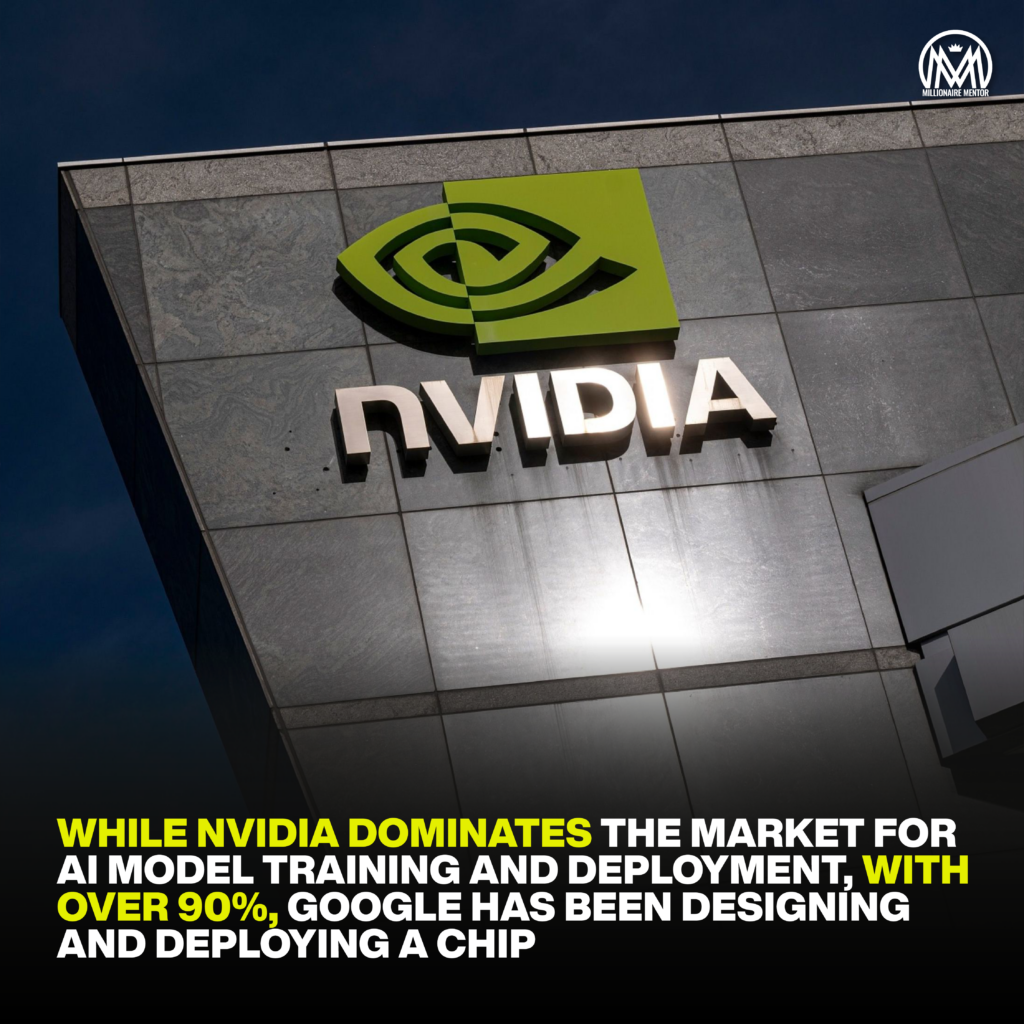Google has recently announced the unveiling of its latest Artificial Intelligence, AI supercomputer, and they claim it beats Nvidia. This announcement has caught the attention of the tech industry, and many are curious about what this means for the future of A.I.
The AI supercomputer is called the Tensor Processing Unit (TPU), and it is a custom-built chip designed specifically for machine learning applications. According to Google, the TPU can perform up to 16 trillion operations per second (TOPS), which is more than double the performance of its predecessor. This means that the TPU is capable of processing vast amounts of data at incredible speeds, making it ideal for complex A.I. tasks.
Google published details about its AI supercomputer on Wednesday, saying it is faster and more efficient than competing Nvidia systems.
Google claims that the TPU beats Nvidia’s latest graphics processing unit (GPU), the A100, in terms of performance and energy efficiency. This is a significant claim, as Nvidia is a leading player in the A.I. hardware market, and their GPUs have been the go-to choice for many machine learning applications.
One of the reasons why the TPU is so efficient is because it was designed specifically for machine learning applications. Unlike GPUs, which were originally designed for gaming and graphics processing, the TPU was built from the ground up to accelerate machine learning workloads. This means that it can perform certain A.I. tasks much faster and more efficiently than a GPU, even though GPUs have been optimized for A.I. workloads in recent years.
Google has been using TPUs internally for several years now to power its A.I. applications, including its search engine, YouTube recommendations, and language translation services. The company has also been offering Tensor Processing Unit (TPU) as part of its cloud computing service since 2018, allowing customers to access the power of Google’s A.I. infrastructure on-demand.
While Nvidia dominates the market for AI model training and deployment, with over 90%, Google has been designing and deploying a chip.
With the release of the latest Tensor Processing Unit (TPU), Google is signaling its commitment to advancing A.I. research and development. By creating custom-built hardware that is optimized for machine learning workloads, the company is pushing the boundaries of what is possible in A.I. and accelerating the pace of innovation.
The release of Google’s latest AI supercomputer is a significant milestone for the industry. It shows that there is still plenty of room for innovation in A.I. hardware, and that companies like Google are willing to invest in custom-built chips that can take A.I. to the next level. As A.I. continues to transform industries and change the way we live and work, the importance of powerful and efficient hardware will only continue to grow.


Trending News Articles
 Robby Clark: Confessions of a Successful Serial Entrepreneurby Wade Foxx●October 28, 2021
Robby Clark: Confessions of a Successful Serial Entrepreneurby Wade Foxx●October 28, 2021 TikTok Places ByteDance Founder Among China Moguls in Singaporeby Jason Stone●May 8, 2024
TikTok Places ByteDance Founder Among China Moguls in Singaporeby Jason Stone●May 8, 2024 @theecomwolf will show you how she build a…by Jason Stone●March 9, 2023
@theecomwolf will show you how she build a…by Jason Stone●March 9, 2023 How BIG would you dream if you knew you co…by Jason Stone●June 14, 2023
How BIG would you dream if you knew you co…by Jason Stone●June 14, 2023





